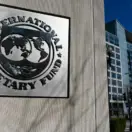Published in DAWN on November 27, 2020
IT appears that the Pakistani workforce in the UAE, along with labour from some other, mostly Muslim, countries, has become an unfortunate casualty of the Middle East’s changing geopolitics. While the actual reasons for halting employment and visit visas by the UAE are not clear at the moment, the move coincides with the advent of diplomatic relations between the Emirates and Israel, with the pressure on other Muslim states to similarly engage with Tel Aviv.
In a recent interview, Prime Minister Imran Khan indicated that Pakistan had also come under such pressure. Speculation has been rife on other counts as well, including security and Covid-19 concerns. In an attempt to end these conjectures, the Foreign Office has said that the matter was not linked to security. In addition, SAPM Zulfikar Bukhari has gone so far as to assert that the UAE authorities said there was “no ban on the export of Pakistani workforce”.
This is at variance with the position of the UAE which has confirmed that the non-issuance of visas “till further notice” applies to employment for and visits by Pakistanis under 65 years of age. Already some reports have suggested that, since the ban came into effect on Nov 18, one recruitment agency in Rawalpindi has lost 3,000 jobs that have now been diverted to India.
The truth is that there will continue to be a great deal of insecurity and speculation unless the UAE and subsequently Pakistan make clear, officially, the actual reasons behind the move. The approach of the UAE has been disappointing and discriminatory. That a country which is home to 1.2m Pakistanis — making up a huge bulk of its population — is arbitrarily taking such a harsh position on the entry of Pakistani citizens is deeply troubling and can have serious implications for long-term ties.
Not only must this approach be challenged by the Foreign Office, it should also be taken up by the prime minister at the highest level, as it spells doom for thousands of Pakistanis working in the UAE. In its annual report, the State Bank of Pakistan warned that forced repatriation of Pakistanis who work abroad could create grave problems for the economy, as there are no jobs that can absorb them in the workforce here. In a post-Covid economy, this would spell disaster. The seriousness of this situation should not be lost on the government, which must address the issue immediately.



